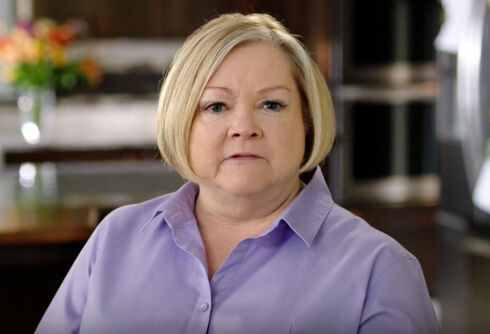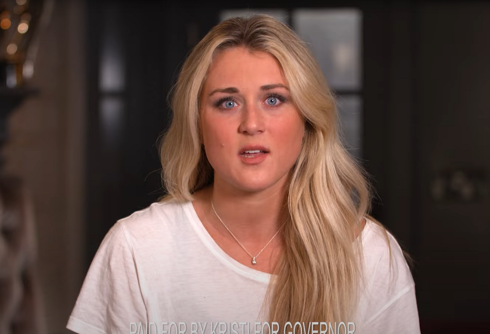LITTLE ROCK, Ark. (AP) — Arkansas’ highest court handed the LGBT community a setback when justices struck down a city’s ordinance banning discrimination based on sexual orientation or gender identity. But it also opened up a larger fight over whether a state law banning such local protections is constitutional.
The state Supreme Court punted on that issue when it ruled Thursday that Fayetteville’s anti-discrimination ordinance violated a measure approved by the Legislature two years ago. That law prevents cities and counties from enacting protections that aren’t contained in state statutes. Arkansas’ civil rights law doesn’t include sexual orientation or gender identity.
Now that justices have clarified the 2015 law explicitly prevents local governments from enacting protections for lesbian, gay, bisexual and transgender people, the next fight in the lower court focuses on whether that restriction violates the U.S. Constitution. That’s where Fayetteville officials say they’re now shifting their attention.
“They can’t, by not using express terms, accomplish the same result which is truly what their intent was, which was to prevent the city from enacting protections for its gay and lesbian residents,” Fayetteville City Attorney Kit Williams said, referring to the Legislature’s passage of law, known as Act 137.
Never Miss a Beat
Subscribe to our newsletter to stay ahead of the latest LGBTQ+ political news and insights.
Arkansas Attorney General Leslie Rutledge had asked the court to uphold the law as constitutional, but justices agreed with Williams that they couldn’t take up that issue since it wasn’t addressed in a Washington County case last year.
The unanimous ruling is the first high-profile decision handed down by the court since last year’s judicial election. The court’s lineup now includes Justice Shawn Womack, a former Republican legislator who once advocated prohibiting gay and lesbian couples from fostering children.
“In essence, Ordinance 5781 is a municipal decision to expand the provisions of the Arkansas Civil Rights Act to include persons of a particular sexual orientation and gender identity,” Justice Josephine Linker Hart wrote in the court’s decision. “This violates the plain wording of Act 137 by extending discrimination laws in the city of Fayetteville to include two classifications not previously included under state law.”
The narrow ruling paves the way for Arkansas to be at the center of a debate over how far states can go in limiting LGBT protections. Arkansas is one of three states that ban local anti-discrimination protections based on sexual orientation or gender identity. Tennessee has a similar ban, and the prohibition is also part of North Carolina’s controversial law restricting which bathrooms transgender people can use. A state appeals court dismissed a lawsuit against Tennessee’s ban in 2014. North Carolina’s law, which prompted widespread boycotts of the state, is being challenged in federal court.
The ruling also leaves uncertain the future of other anti-discrimination measures that were enacted in response to Act 137. Eureka Springs has an anti-discrimination ordinance similar to Fayetteville’s on the books, while Little Rock, Pulaski County and Hot Springs have narrower measures that apply to their agencies and contractors. The decision didn’t directly address any of those measures. Rutledge has argued the ordinances aren’t allowed under the law, but her office said it’s too soon to say whether they’re impacted by the court’s decision.
“The logic of today’s ruling appears to apply to other similar local ordinances around the state, but we want to continue to look into it,” spokesman Judd Deere said.
Pulaski County and Little Rock officials, however, have said they’ll continue enforcing the ordinances. An unresolved issue is whether a provision in the state law allowing cities and counties to pass anti-discrimination protections for their employees would include the requirement for vendors that they’ve also approved.
With all the unanswered questions remaining, the court’s ruling for now looks like the opening round in a fight that’s going to last months, if not longer.
This material may not be published, broadcast, rewritten, or redistributed.














